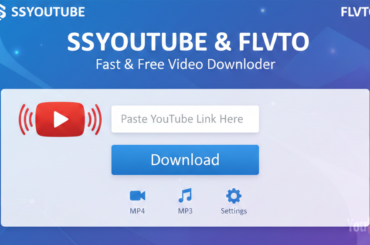Managing patient relationships in today’s healthcare industry requires more than just a friendly front-desk team. With increasing patient expectations, competitive pressure, and the growing importance of digital communication, healthcare providers are turning to CRM (Customer Relationship Management) tools to streamline operations, personalize care, and improve patient retention. These systems help clinics, hospitals, and medical professionals manage appointments, automate reminders, enhance communication, and track patient history—all within a secure and user-friendly platform. Below are ten of the best CRM tools healthcare providers should consider in 2025.
1. Instacare CRM
Instacare is a leading healthcare technology provider in Pakistan, offering a purpose-built CRM system designed for local clinics, hospitals, and diagnostic labs. Its CRM module includes features such as online appointment scheduling, automated patient reminders via SMS or email, patient feedback collection, billing integration, and digital medical records management. Instacare CRM also connects directly with lab software, telemedicine modules, and patient management software, making it a comprehensive solution. It’s ideal for South Asian providers looking for localized features and customer support tailored to regional healthcare workflows.
2. Salesforce Health Cloud
Salesforce Health Cloud is a premium CRM solution tailored specifically for healthcare. It provides a holistic view of each patient, including medical history, appointment records, care plans, and real-time communication tools. This enables healthcare providers to deliver personalized care across every stage of the patient journey. The platform also integrates seamlessly with major EHR systems and complies with HIPAA, making it suitable for large hospital networks and specialist care providers. Its built-in AI tools help predict patient needs, manage workflows, and make data-driven decisions that enhance patient care.
3. HubSpot CRM (Healthcare Customization)
While HubSpot CRM wasn’t originally developed for healthcare, it has gained popularity among clinics and private practices due to its flexibility and ease of use. Healthcare providers can customize HubSpot to manage patient outreach, automate reminders, segment patient types, and track communication history. It also offers robust marketing automation tools that can be used for health awareness campaigns, patient feedback collection, and appointment follow-ups. This CRM is especially beneficial for small practices that want to attract new patients and retain existing ones without a steep learning curve.
4. Zoho CRM for Healthcare
Zoho CRM is another versatile platform that offers healthcare-focused features through customization. It helps clinics and hospitals manage patient data, track appointments, automate communications, and generate custom reports. With Zoho, providers can create workflows that notify staff about upcoming procedures, follow up on test results, and keep patient care on track. The CRM can also be integrated with other Zoho tools like Zoho Books and Zoho Forms, offering a full ecosystem for operational management.
5. Microsoft Dynamics 365 Healthcare Accelerator
Microsoft Dynamics 365, combined with its Healthcare Accelerator, is built for large-scale healthcare organizations. It offers patient insights, care coordination tools, AI-powered predictive analytics, and full integration with Microsoft’s suite of business applications. Providers can use it to personalize care, automate complex workflows, and identify trends in patient populations. The platform is secure and compliant with major healthcare regulations, making it a solid choice for multi-site hospitals, research institutes, and health-focused enterprises.
6. Kareo CRM
Kareo is a CRM platform specifically designed for small medical practices and independent practitioners. It offers tools for managing patient interactions, scheduling appointments, sending reminders, and collecting reviews. Kareo’s user-friendly dashboard allows providers to monitor the entire patient journey from the first visit to follow-up. This makes it easier to reduce no-shows, improve engagement, and maintain long-term relationships with patients. It also includes billing and practice management capabilities, making it a convenient all-in-one platform for smaller operations.
7. Pipedrive for Healthcare Outreach
Pipedrive is a sales-oriented CRM that has found its place in the healthcare sector, particularly for clinics and wellness centers that focus on patient acquisition and retention. It can be configured to manage leads, referrals, and communication pipelines with prospective patients or partners. Its visual dashboard helps track where each patient or partner stands in the communication process. While not a traditional healthcare CRM, Pipedrive’s simplicity and adaptability make it useful for medical providers who also focus on growth and business development.
8. NexHealth CRM
NexHealth offers a modern CRM platform focused on creating a seamless patient experience. Its features include digital appointment booking, two-way texting, real-time sync with EHRs, digital intake forms, and automated reminders. NexHealth is particularly popular with dental, dermatology, and primary care clinics that want to reduce administrative tasks while enhancing convenience for patients. By automating routine tasks, providers can focus more on patient care while maintaining high levels of engagement and satisfaction.
9. Solutionreach
Solutionreach is a healthcare-specific CRM solution that helps providers manage patient communication and engagement. It includes appointment scheduling, reputation management, surveys, automated reminders, and patient recall campaigns. The platform allows for personalized messaging across SMS, email, and voice calls. Solutionreach also integrates with many EHR systems and offers reporting tools to help measure patient satisfaction and optimize outreach strategies. It is a great tool for practices looking to improve their communication and reduce no-shows.
10. Insightly CRM for Healthcare Services
Insightly is a versatile CRM that, while not exclusively for healthcare, serves wellness providers, home health services, and medical vendors effectively. It provides features like relationship tracking, workflow automation, email integration, and project management. Healthcare providers can use Insightly to manage referrals, track patient histories, and automate follow-ups. Its custom fields and role-based permissions make it adaptable for care coordinators, administrative teams, and customer service units within a healthcare setup.
Why CRM Tools Are Essential for Healthcare Providers
CRM tools have become critical in helping healthcare providers build strong, lasting relationships with patients. By automating routine communication, organizing patient data, and enabling personalized interactions, CRMs improve operational efficiency and patient satisfaction. Features like reminders, data-driven insights, EHR integration, and communication logs reduce administrative burdens and enhance care delivery. Whether you’re a small clinic or a large hospital network, the right CRM helps you stay connected with your patients while running your practice more effectively.
Final Thoughts
Selecting the best CRM for your healthcare facility depends on factors like clinic size, integration needs, budget, and patient engagement goals. Platforms like Instacare cater to localized needs, while giants like Salesforce and Microsoft Dynamics 365 serve enterprise-level operations. Whether you’re aiming to reduce no-shows, streamline communication, or grow your practice, a well-implemented CRM system can be a game-changer in how you serve your patients.
If you’re ready to take your patient management and communication to the next level, explore solutions like Instacare’s healthcare CRM and EHR software, designed specifically to enhance clinical efficiency and boost patient engagement.






